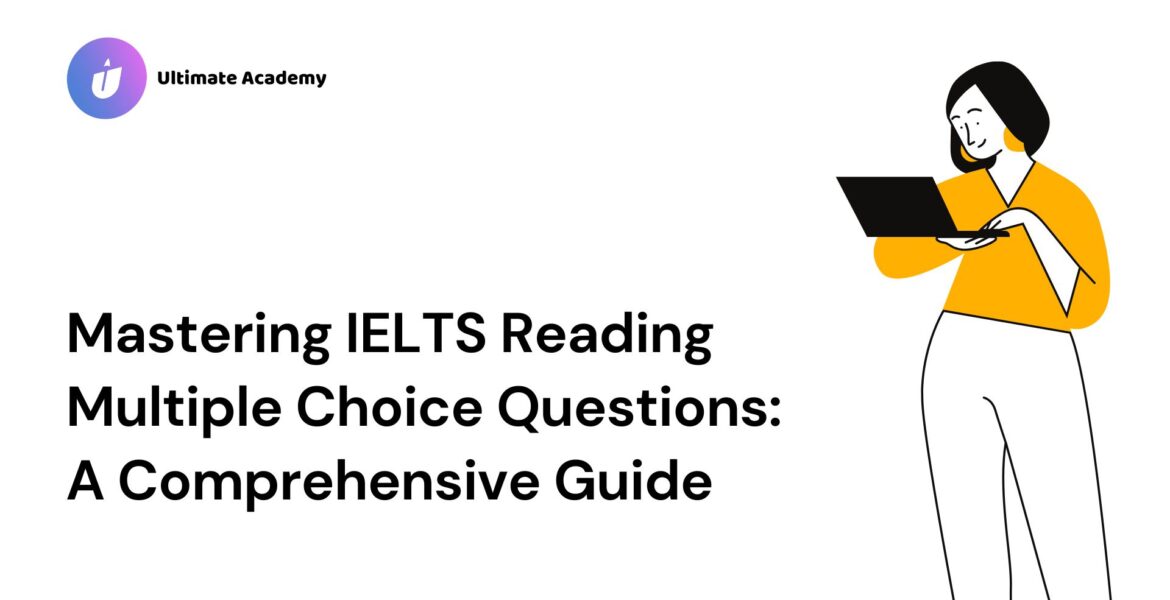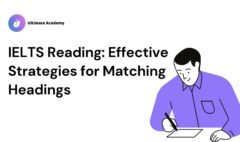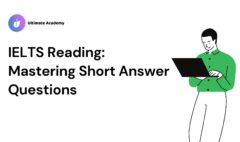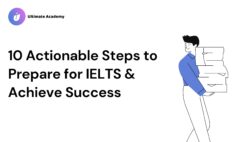Mastering IELTS Reading Multiple Choice Questions: A Comprehensive Guide
Are you preparing for the IELTS reading test and struggling with multiple choice questions (MCQs)? Don’t worry, this article is here to help you. MCQs are a common format in both the academic and general IELTS reading papers.
In this comprehensive guide, we will provide you with example questions, discuss the necessary reading skills, address common problems, offer valuable tips and advice, and provide you with a strategy to ace your IELTS reading exam.
Example Questions
Let’s begin by looking at the different types of MCQ questions you might encounter. The three types include:
- Choosing one answer out of four options.
- Choosing two answers out of five options.
- Choosing three answers out of six options.
Typically, the first option is the most common. Additionally, you may come across two different question forms: completing a sentence or answering a question.
Here are a couple of examples to illustrate:
- Academic Test Example:

Source: Cambridge English IELTS Past Papers
In this example, you need to choose one answer from four possible options, and the question requires you to complete the sentences.
- General Paper Example:
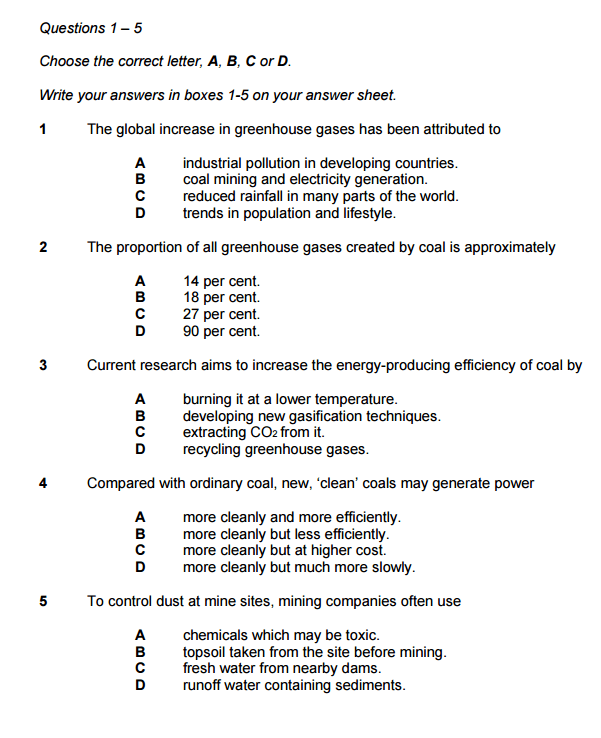
Source: Cambridge English IELTS Past Papers
Reading Skills
To effectively answer MCQs, it is crucial to develop specific reading skills. These questions assess your ability to comprehend the main ideas in a text and locate specific information.
Follow these key steps to enhance your reading skills for MCQs:
- Identify the main idea: Quickly grasp the main idea to locate the relevant section of the text.
- Detailed reading: Once you have identified potential answer choices, delve into the text to find the specific information that confirms the correct answer.
Common Problems
Before we delve into tips and strategies, let’s address some common problems faced by test-takers when dealing with MCQs:
- Reading the text before the questions: Avoid reading the text before the questions, as it leads to a blind reading experience. You won’t know what to look for, and you’ll end up wasting time reading the text twice.
- Not answering questions: While it may seem obvious, many test-takers forget to answer the questions altogether. Ensure you respond to each question.
- Being tricked by the examiner: Examiners often include distractors, which are incorrect answer choices that resemble the correct answer. Avoid falling into this trap by thoroughly analyzing the context of the question and any qualifying words.
- Not reading the whole sentence: Sometimes, the first part of a sentence may appear correct, but the latter half might alter the meaning. Pay attention to words like “but” and “however” that can change the entire sentence’s meaning.
- Not reading the text carefully: With numerous distractors present, some seemingly correct answers might catch your attention. Take the time to comprehend the meaning of each sentence before making a choice.
Top 10 Tips for MCQs
To boost your performance in answering IELTS reading MCQs, consider the following tips:
- Read the questions first: Familiarize yourself with the questions before diving into the text. This approach helps you focus on relevant information.
- Eliminate incorrect options: Often, you can eliminate two out of the four answer choices, narrowing down your options. Analyze the differences in meaning between the remaining choices to determine the correct answer.
- Rephrase sentences: If you struggle to understand the nuances between two or more sentences, try rephrasing them in your own words. This can provide clarity and aid your decision-making process.
- Make educated guesses: If you’re running out of time or are unsure of the answer, take a calculated guess. Remember, incorrect answers do not result in lost marks, and you have a 25% chance of guessing correctly.
- Beware of distractors: Examiners often employ distractors that resemble keywords from the questions. Avoid being misled by such similarities and consider the overall context of the sentence.
- Don’t panic about unfamiliar topics: Remember, the IELTS reading test evaluates your reading skills, not your knowledge on specific topics. Stay calm and focus on comprehending the text.
- Predict the correct answer before reading the text: Before delving into the text, take a moment to predict the correct answer based on your understanding of the question. This prediction can guide your search for the answer within the text.
- Carefully recheck the question: Before finalizing your answer, go back and reread the question. Ensure that your choice aligns with the specific requirements of the question.
- Sequential order: In most cases, the answers will follow the same order as the information presented in the text. Use this knowledge to your advantage when locating the answers.
- Differentiate facts from opinions: MCQs may test both factual information and opinions. Distinguish between these two types of statements. Facts are objectively true or cannot be disproven, while opinions reflect personal perspectives.
If you are liking this so far, you’ll love the IELTS Smart Hacks PDF I’ve prepared for you.

Download the PDF here: 11 Hacks To Ace IELTS
Strategy for Short Answer Questions
While there are various strategies to approach MCQs, here is a suggested strategy that you can adapt to suit your preferences:
- Carefully read the questions to understand what is being asked.
- Skim through the text to grasp the overall meaning and structure.
- Identify keywords in the questions and consider potential synonyms that may appear in the text.
- Read through the answer choices and mark keywords within them. Reflect on the differences in meaning between the options.
- Predict the correct answer based on your understanding of the question.
- Begin reading the text, focusing on keywords and their synonyms to locate the section containing the answers.
- Read the relevant portion of the text attentively, considering the nuances of meaning in each sentence.
- Evaluate not only the correctness of the options but also the reasons why the other choices are incorrect.
- Return to the question, reread it, and confidently mark your final choice.
In addition to this blog, explore our Free Masterclass on IELTS Speaking. Join our Facebook page to stay updated on the latest tips and guidance.
If you liked this article, you’ll absolutely love the Free MasterClass on IELTS on Ultimate Academy.
In it, I’ll teach you how to increase your score by 1 Band overnight.

Here’s the link to watch it: IELTS MasterClass
Types of Questions
Familiarize yourself with the various question types. Click on the links below to access valuable insights, including common challenges, tips, and strategies for each type:
Short Question Answer
Bar Chart Questions
Pie Chart Questions
Table Questions
Map Questions
True, false, not given
Sentence completion
Summary, note, table, flow-chart completion
Diagram label completion
Multiple choice
Matching information
Matching headings
Matching sentence endings
New to IELTS? Here are some FAQs you might have
What is the format of the IELTS Reading test?
The IELTS Reading test consists of three passages, each followed by a set of questions. The passages are taken from books, magazines, newspapers, or online sources.
How many questions are there in the IELTS Reading test?
There are a total of 40 questions in the IELTS Reading test, with about 13-14 questions per passage.
How much time do I have to complete the IELTS Reading test?
You have 60 minutes to complete the entire IELTS Reading test. It is recommended to spend about 20 minutes on each passage and the accompanying questions.
Can I transfer my answers from the question paper to the answer sheet later?
No, you must transfer your answers directly to the answer sheet as you go along. There is no extra time given for transferring answers at the end.
Can I write in capital letters for my answers in the IELTS Reading test?
Yes, you can write your answers in all capital letters or in lowercase letters. However, it is important to be consistent throughout the test.
Are the questions in the IELTS Reading test in the same order as the information in the passage?
Not always. The questions may not follow the exact order of information in the passage. Therefore, it is crucial to carefully read and understand each question before searching for the relevant information in the passage.
Should I read the entire passage before answering the questions?
It is not necessary to read the entire passage before attempting the questions. Skimming and scanning techniques can help you locate specific information efficiently. However, you should read the passage more thoroughly when answering detailed or inference-based questions.
How can I improve my reading speed for the IELTS Reading test?
Practicing regularly and exposing yourself to a wide range of reading materials can help improve your reading speed. Additionally, using skimming and scanning techniques can enhance your ability to quickly find information in the passage.
How can I manage my time effectively in the IELTS Reading test?
Time management is crucial in the IELTS Reading test. It is recommended to allocate a specific amount of time to each passage and its questions. This allows you to pace yourself and ensure that you have enough time for all the questions.
How can I improve my overall performance in the IELTS Reading test?
To improve your performance, practice regularly using authentic IELTS reading materials. Familiarize yourself with different question types and strategies for each type. Work on expanding your vocabulary and improving your reading comprehension skills through extensive reading. Seek feedback from a teacher or a native English speaker to identify areas for improvement.

